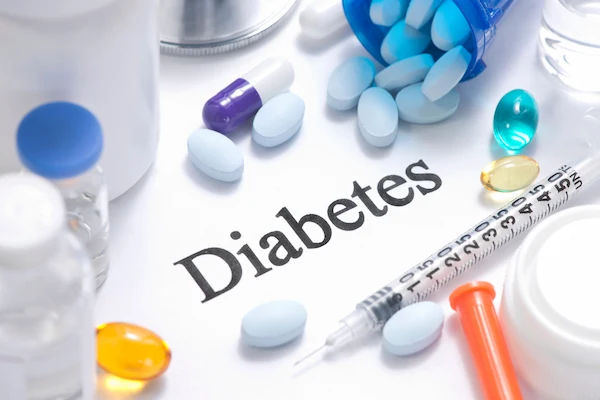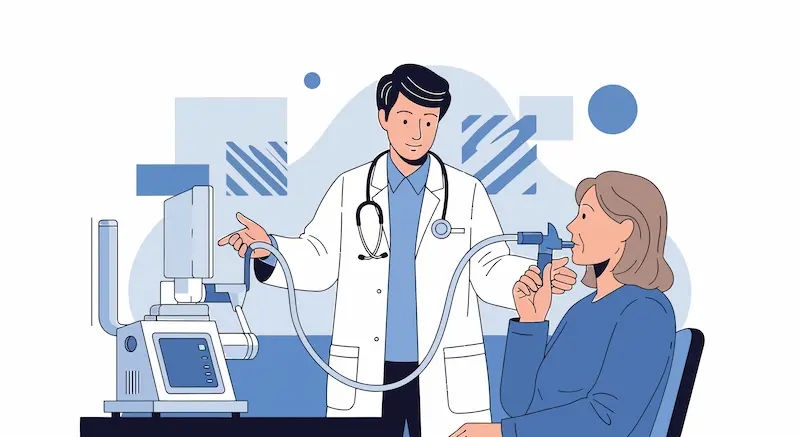Progesterone Therapy: Your Essential Guide to Safety & Side Effects
Know about the progesterone therapy, what it is, key precautions, different types, medical treatment, monitoring of therapy and more.

Written by Dr. Dhankecha Mayank Dineshbhai
Reviewed by Dr. M L Ezhilarasan MBBS
Last updated on 13th Jan, 2026

Introduction
Progesterone therapy is a powerful medical tool, offering relief from debilitating menopause symptoms, supporting fertility journeys, and protecting pregnancies. However, like any potent medication, it comes with a necessary set of precautions. Navigating the world of hormone therapy can feel overwhelming, with concerns about side effects, long-term risks, and complex medical jargon.
This guide is designed to demystify progesterone therapy, putting your safety at the forefront. We’ll walk you through the essential precautions you need to know before starting treatment, how to manage common side effects, and identify when a symptom might be a red flag.
What is Progesterone Therapy and Why is it Used?
Progesterone is a naturally occurring hormone produced primarily in the ovaries following ovulation. It plays a critical role in regulating the menstrual cycle and maintaining the early stages of pregnancy. Progesterone therapy involves supplementing the body with synthetic or bio-identical forms of the hormone to treat specific conditions.
Consult a Gynaecologist for Personalised Advice
Hormone Replacement Therapy (HRT) for Menopause
For women undergoing menopause, estrogen therapy alone can increase the risk of uterine cancer (endometrial cancer). Progesterone is added to HRT to protect the uterine lining. This combination is crucial for women who have not had a hysterectomy.
Supporting Fertility and Pregnancy
In fertility treatments like IVF, progesterone therapy is used to prepare the uterine lining for embryo implantation and support the early pregnancy until the placenta takes over hormone production. It's also a standard treatment to help prevent preterm birth in women with a short cervix.
Treating Other Medical Conditions
It can be used to treat abnormal uterine bleeding, secondary amenorrhea (absent periods), and symptoms of premenstrual syndrome (PMS).
Key Precautions Before Starting Progesterone
Taking precautions with progesterone begins long before you take your first dose. A thorough initial assessment with your doctor is the most critical step in ensuring safe treatment.
Disclosing Your Full Medical History
You must provide your doctor with a complete medical history. This is non-negotiable. Key information includes:
- Personal or family history of blood clots, deep vein thrombosis (DVT), or pulmonary embolism.
- History of stroke, heart attack, or heart disease.
- Personal or family history of breast cancer, ovarian cancer, or any other hormone-sensitive cancer.
- History of liver disease, kidney disease, or gallbladder disease.
- Unexplained vaginal bleeding.
- If you are pregnant, planning to become pregnant, or breastfeeding.
- History of depression, anxiety, or other mental health conditions.
Conditions That Require Extreme Caution
Certain conditions are considered absolute contraindications, meaning progesterone therapy should generally not be used. These include known or suspected pregnancy (for some specific types not intended for pregnancy support), known blood-clotting disorders, severe liver disease, and known or suspected hormone-sensitive cancers like breast cancer.
Understanding the Different Types: Synthetic vs. Bio-identical
Not all progesterone is created equal. Progestins are synthetic versions that have a different molecular structure and can have different side effect profiles (often a stronger association with blood clot risk).
Micronised progesterone (often called bio-identical) is chemically identical to the hormone your body produces and is generally considered to have a slightly better safety profile regarding clot risk. Discuss which type is most appropriate for you.
Reviewing Your Current Medications and Supplements
Progesterone interactions can be significant. Provide your doctor with a full list of all prescriptions, over-the-counter drugs, and herbal supplements. Key interactions can occur with other hormones, blood thinners, certain antifungal or seizure medications, and even St. John's Wort.
Navigating Side Effects: What to Expect and When to Worry
Understanding the difference between common side effects and signs of a serious complication is a vital part of your progesterone therapy precautions.
Common and Manageable Side Effects
Many women experience these, which often subside after the first few months as your body adjusts:
- Drowsiness and fatigue (often why it's recommended to take it at bedtime)
- Dizziness
- Bloating, abdominal cramping, or gas
- Breast tenderness or swelling
- Headaches
- Mood swings, mild anxiety, or irritability
- Breakthrough bleeding or spotting
Serious Side Effects That Demand Immediate Medical Attention
While rare, these symptoms require you to stop taking the medication and seek immediate medical help, as they could indicate a blood clot or other severe reaction:
- Sudden vision changes or loss; sudden severe headache
- Speech problems; weakness or numbness in an arm or leg
- Chest pain or pressure; shortness of breath; coughing up blood
- Pain, redness, swelling, or warmth in the calf (potential DVT)
- Severe abdominal pain; jaundice (yellowing of the skin or eyes)
- New breast lumps or changes in breast tissue
Long-Term Considerations and Monitoring
Ongoing vigilance is key to safely managing long-term therapy.
The Discussion Around Breast Cancer Risk
The link between combined HRT (estrogen + progestin) and breast cancer risk is complex and was highlighted by the Women's Health Initiative study. The increased risk is considered small and may vary based on the type of progesterone used, dosage, and treatment duration. This makes regular breast self-exams, clinical breast exams, and mammograms an essential part of your progesterone safety plan.
Cardiovascular Health and Blood Clot Monitoring
The risk of blood clots is higher with synthetic progestins. Be hyper-aware of the symptoms of DVT and pulmonary embolism listed above. Manage other cardiovascular risk factors through a healthy lifestyle: don't smoke, maintain a healthy weight, and control blood pressure and cholesterol.
The Importance of Regular Check-ups and Screenings
Therapy is not "set it and forget it." Regular monitoring with your doctor is crucial. They will assess your symptoms, evaluate the effectiveness of the treatment, screen for potential side effects, and determine if the dose needs adjustment or if therapy should be continued.
Lifestyle Tips to Manage Progesterone Therapy
A proactive approach to your lifestyle can significantly improve your experience.
Dietary Considerations
To manage bloating, reduce sodium intake and drink plenty of water. Eating a balanced diet rich in fiber can help counteract any constipation. Some find that reducing caffeine helps with anxiety and breast tenderness.
Managing Side Effects Like Fatigue and Mood Swings
- For Fatigue: Take your dose at bedtime to sleep through the drowsiest period. Prioritize sleep hygiene and light daily exercise to boost energy.
- For Mood Swings: Practices like mindfulness, yoga, and regular exercise can be powerful tools. Keep a symptom journal to track your mood and identify patterns to discuss with your doctor.
Conclusion
Progesterone therapy can be a life-changing treatment, restoring balance and quality of life for many women. However, its power is matched by the need for careful and informed use. By understanding the essential precautions with progesterone therapy—from thoroughly vetting your medical history to recognising serious side effects—you become an active, empowered participant in your healthcare journey. This knowledge allows you to work collaboratively with your doctor to maximise the benefits of treatment while minimising its risks.
Consult a Gynaecologist for Personalised Advice
Consult a Gynaecologist for Personalised Advice

Dr Jaya Kumar Agarwal
Obstetrician and Gynaecologist
25 Years • MBBS , DGO , DNB (obstetric and gynecology) DGE diploma in Gyne endoscopy (Germany )
Delhi
Apollo Hospitals Indraprastha, Delhi

Dr. Vineet Mishra
Infertility Specialist
36 Years • MD, Phd, DSc
Ahmedabad
Apollo Hospitals - Gandhinagar, Ahmedabad, Ahmedabad

Dr Bhawna Garg
Gynaecological Oncologist
26 Years • MBBS, MS, (PGI MS ROHTAK) FELLOWSHIP GYNECOLOGY ONCOLOGY, (CANCER INSTITUTE CHENNAI)
Delhi
Apollo Hospitals Indraprastha, Delhi

Dr. S Asha Devi
Obstetrician and Gynaecologist
13 Years • MS.OG .,MRCOG (UK)
Chennai
Apollo Speciality Hospitals OMR, Chennai
(100+ Patients)

Dr. Vandana Sinha
Obstetrician and Gynaecologist
14 Years • MBBS, MS(Obs & Gyn), Fellow in Gynec-Onco. & Gynec Endoscopy
Ahmedabad
Apollo Hospitals Gandhinagar, Ahmedabad
(200+ Patients)
Consult a Gynaecologist for Personalised Advice

Dr Jaya Kumar Agarwal
Obstetrician and Gynaecologist
25 Years • MBBS , DGO , DNB (obstetric and gynecology) DGE diploma in Gyne endoscopy (Germany )
Delhi
Apollo Hospitals Indraprastha, Delhi

Dr. Vineet Mishra
Infertility Specialist
36 Years • MD, Phd, DSc
Ahmedabad
Apollo Hospitals - Gandhinagar, Ahmedabad, Ahmedabad

Dr Bhawna Garg
Gynaecological Oncologist
26 Years • MBBS, MS, (PGI MS ROHTAK) FELLOWSHIP GYNECOLOGY ONCOLOGY, (CANCER INSTITUTE CHENNAI)
Delhi
Apollo Hospitals Indraprastha, Delhi

Dr. S Asha Devi
Obstetrician and Gynaecologist
13 Years • MS.OG .,MRCOG (UK)
Chennai
Apollo Speciality Hospitals OMR, Chennai
(100+ Patients)

Dr. Vandana Sinha
Obstetrician and Gynaecologist
14 Years • MBBS, MS(Obs & Gyn), Fellow in Gynec-Onco. & Gynec Endoscopy
Ahmedabad
Apollo Hospitals Gandhinagar, Ahmedabad
(200+ Patients)
More articles from General Medical Consultation
Frequently Asked Questions
Can I take progesterone if I have a family history of breast cancer?
This requires a detailed risk-benefit analysis with your doctor and possibly an oncologist. While a family history is a significant precaution, it may not be an absolute contraindication. The type of progesterone and the reason for use will heavily influence the decision.
Does natural progesterone have the same risks as synthetic?
Studies, such as those from the KEEPS trial, suggest that micronised progesterone (bio-identical) has a more favourable safety profile regarding progesterone and blood clot risk compared to synthetic progestins. However, it still carries risks and requires the same precautions.
How long does it take for progesterone side effects to calm down?
Most common side effects like drowsiness, bloating, and headaches tend to diminish within the first 2-3 months as your body adjusts to the hormone. If side effects persist beyond two weeks and are severely impacting your life, consult your doctor; a dosage adjustment or formulation change may be needed.
Are there any specific foods I should avoid?
There are no specific foods that directly interact with progesterone, but a high-sodium diet can worsen bloating. A balanced diet supports overall health and can help manage weight, which is a factor in cardiovascular risk.
Can progesterone cause weight gain?
Progesterone itself is not a major cause of weight gain like some other hormones. However, the bloating and water retention it can cause may lead to temporary weight fluctuations. Some women also experience increased appetite.




